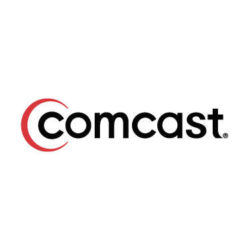Word up … Comcast didn’t discriminate “by reducing distribution” of a religious broadcast network targeting African American consumers “without a valid business justification.”
That’s the key takeaway from a ruling released Friday by the Media Bureau, which also determined that Comcast negotiated carriage agreements without violating financial interest provisions of the Commission’s rules.
The decision from the FCC’s Media Bureau is a setback for The Word Network (TWN), which calls itself “the largest African-American religious network in the world.”
The battle between The Word Network and Comcast begins with conditions imposed on the latter entity when the FCC approved its acquisition of NBCUniversal. To make the Commission happy, it barred Comcast from discriminating against video programming vendors on the basis of affiliation or non-affiliation in the the selection, price, terms or conditions of carriage.
Under this condition, a vendor need not prove that it was unreasonably restrained from competing, as it must under Section 616 of the Act and the program carriage rules.
Comcast began distributing TWN some six months after its launch, in September 2000, “on certain Comcast systems.” TWN does not charge Comcast a per-subscriber fee for distribution and provides its signal to Comcast free of charge.
Sixteen years later, the relationship between TWN and Comcast soured. As the Media Bureau points out, each side has “drastically different versions” of the events giving rise to TWN’s complaint.
We start with TWN’s version of events. According to the network, on Nov. 11, 2016, Comcast SVP/Content Acquisition Jennifer Gaiski notified TWN by letter of Comcast’s intent to eliminate distribution of TWN on 456 Comcast systems, reducing TWN’s distribution on Comcast from approximately 12 million to 5 million subscribers.
This impacted TWN in such markets as Philadelphia, Baltimore, and Washington, D.C. — some of the largest Black DMAs in the U.S. Also impacted were viewers in Pittsburgh, Houston, Salt Lake City, the San Francisco-Oakland-San Jose DMA, Denver, Boston, and Minneapolis-St. Paul.
TWN says there was neither an explanation nor a prior warning for Comcast’s decision, and that it was subsequently informed that a competing network — The Impact Network — would be replacing TWN.
TWN then assailed Comcast, based on its version of events, for not explaining how it determined the network underperformed based on Comcast market metrics; and that Gaiski demanded exclusive control over TWN’s digital rights at a meeting held at Comcast headquarters in Philadelphia with The Word Network President/CEO Kevin Adell.
Adell says he rejected this request, explaining that TWN streams its content through TWN’s website and does not license its digital rights to any distributors. He then claims that Comcast then informed TWN that it is Comcast’s policy to not carry a video programming vendor unless the vendor grants Comcast its digital rights.
Comcast’s version of the story notes that in September and October 2016, it reviewed the results of an audience survey of viewer preferences among African-American pay-TV subscribers that was conducted between June 21 and July 13, 2016.
The survey showed that Comcast carries multiple religious networks that are popular among African American viewers and that other religious networks had greater reach and higher intensity viewership among African American viewers than TWN.
Furthermore, Comcast found that TWN’s programming substantially overlapped with many of the other religious networks carried by Comcast, including Impact, and that there would be adequate substitutes for TWN viewers should the network be dropped from Comcast systems.
To make matters worse for TWN, Comcast research found that Impact offers a broader selection of programming, spanning a greater variety of program genres, than TWN, which almost exclusively airs ministry-focused programming.
Perhaps most damning for The Word Network is this revelation from Comcast: Unlike TWN, Impact is an African American owned and operated network, adding to the diversity of independent programming carried by Comcast.
It also noted that Impact has sponsored concerts and religious events in local communities “that enhance Comcast’s carriage of Impact in those communities.”
With that, TWN carriage was reduced. Comcast notes that these reasons were shared with Adell.
Further, Comcast disputed a potentially discriminatory comment by saying that, in three sworn declarations, it denies that Ms. Gaiski ever told TWN that the reason for the reduction in distribution of TWN was “[b]ecause we are Comcast, and we can.”
Comcast also denies that Ms. Gaiski demanded or sought any digital rights, let alone exclusive rights, to TWN’s programming. That’s because Comcast asserts that it would not have made sense to seek or demand such rights as Comcast was interested in reducing distribution of TWN, not obtaining additional distribution rights.
With two differing accounts of the situation to review, the Media Bureau sided with Comcast, noting that TWN failed to establish a prima facie case that Comcast violated the financial interest provision of Section 616(a)(1) of the Act and Section 76.1301(a) of the Commission’s rules by refusing to negotiate with TWN unless it granted Comcast exclusive digital rights to TWN programming, and did not discriminate against TWN by reducing distribution of the network or by demanding exclusive digital rights to TWN’s programming.
Before we review the reasons why the Media Bureau sided with Comcast, there’s just one more bit of information Comcast shared with the FCC: In a phone call between Adell and Gaiski, with two other participants, Adell informed Comcast that his WADL-38 in Detroit, a secondary NBCUniversal affiliate that airs such programs as “Dateline NBC,” would not be renewing its programming agreement.
As a sidenote, this station failed to attract a bid in the FCC’s incentive auction.
Furthermore, Adell was “running ads against Comcast” on his Class B WFDF-AM 910 in Farmington Hills, Mich., and that he was planning a protest outside of Comcast’s headquarters in Philadelphia for Dec. 2, 2016.
With a final decision on whether or not to maintain TWN still under consideration, Comcast claims, a smear campaign unfolded with Adell a key figure in those efforts.
The Media Bureau’s discussion on the matter is lengthy. But, it’s point is clear: There is no direct evidence of discrimination on the basis of affiliation or non-affiliation.




